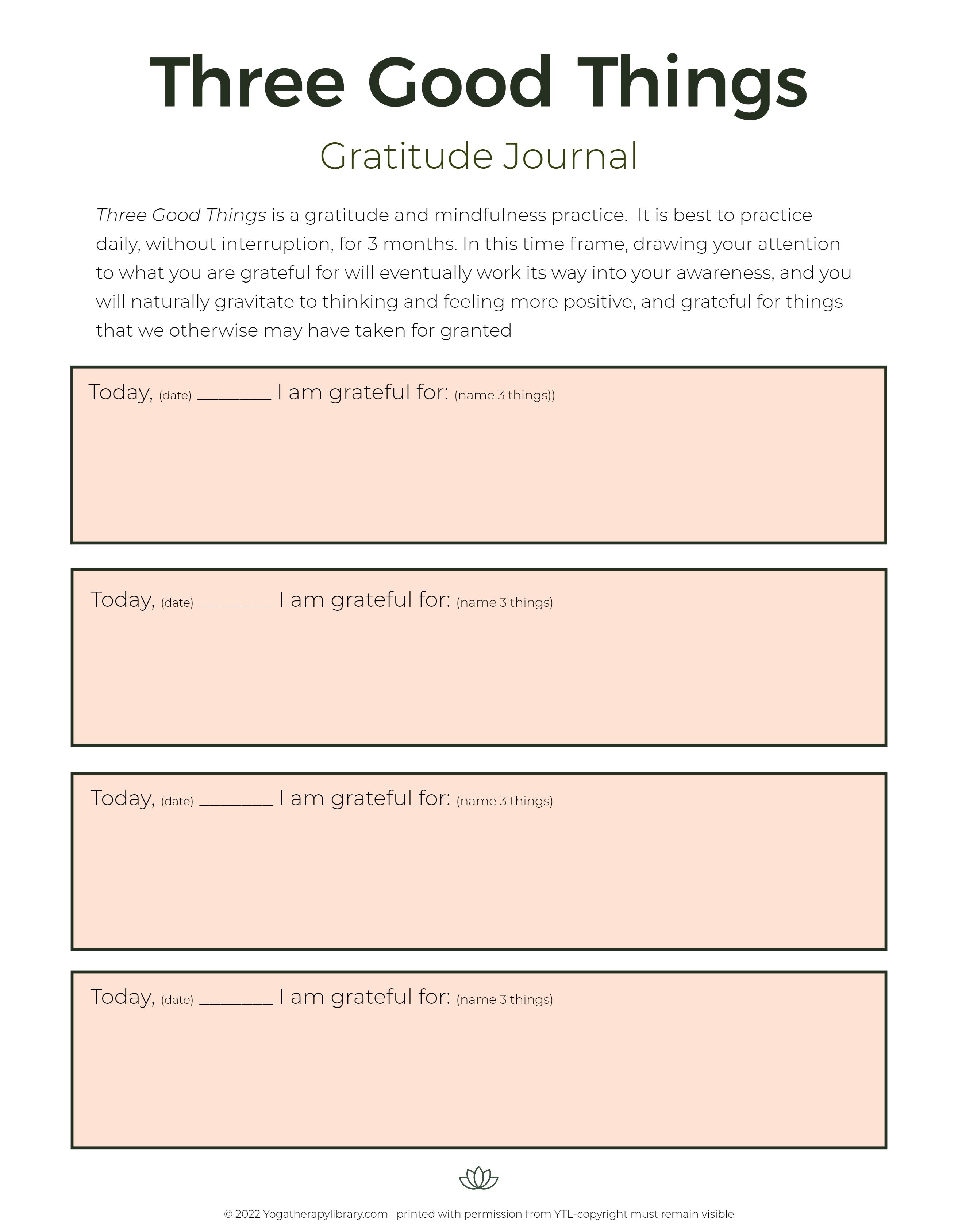What Does the Research Say About...the Science of Gratitude
Taking time to take stock of what you are grateful for in life has tangible health benefits for both body and mind. Part 1 of our micro blog series: What Does the Research Say?

"What Does the Research Say?" is a regular feature of YTL Resource posts. The intention is to provide language about the evidence based benefits of Yoga Therapy that is consistent with research findings. It is important to not under- or over-state what the authors of studies have concluded. We list some randomized, controlled studies, and well executed systematic reviews in the resource list at the bottom of the article. This information is for Yoga Therapists who want to include research when promoting workshops, series, and classes, or writing grant proposal, or other healthcare related documentation.
कृतज्ञा kṛtajñā (Gratitude) - knowing what is right, correct in conduct, [Mahābhārata xii, 104, 6]
The Science of Gratitude
The expression of gratitude – simply telling someone how much they have helped you, how appreciative you are, or what they mean to you - has measurable health benefits and improves your sense of well-being; it truly affects your mind, body, and spirit.
· Physiological (bio-medical) effects of gratitude as a practice:
- reduces blood pressure
- reduces chronic pain
- increases energy levels
- increases longevity (you live longer!)
- improves sleep (practice the gratitude inventory!)
- kick starts the production of dopamine and serotonin (happy brain chemicals!)
· Pro-Social effects of gratitude as a practice:
- increases empathy
- builds stronger relationships
- strengthens resiliency
· Psychological effects of gratitude as a practice:
- increases happiness
- increases sense of contentment
- reduces depression
- improves self-esteem
SELF-PERPETUATING AND RESILIENCE BUILDING
Regular gratitude practice allows you to naturally develop a positive attitude and notice positive experiences without effort. Focusing on the positive makes you more likely to deflect or dismiss negative events; in other words, things that used to annoy you do not have the same effect on you anymore. You will be less likely to hand over your power by getting drawn into hostile situations, and instead, you can conserve your energy for something good.
WAYS TO PRACTICE GRATITUDE
1) Keep a Gratitude Journal for a minimum of 3 months – we like “Three Good Things” (downloadable below), and we have provided a free copy for you.
2) Do a gratitude inventory right before bed:
- Who has shown me kindness today?
- What experiences did I have today that made me happy, gave me a sense of wonder, or had other positive effects?
- Name something about myself that I am grateful for (e.g., I am kind, I am strong…)
YTL's Favorite Gratitude Links
Maya Angelou self-love and gratitude
https://www.youtube.com/watch?v=6SfCGayi354
The science of gratitude-kiss your brain
https://www.youtube.com/watch?v=wZWN6lfVYtw
Gratitude experiment
Three Things Gratitude Journal - Downloadable
REFERENCES
Emmons, R. A., McCullough, M. E., & Tsang, J.-A. (2003). The assessment of gratitude. In S. J. Lopez & C. R. Snyder (Eds.), Positive psychological assessment: A handbook of models and measures (pp. 327–341). American Psychological Association. https://doi.org/10.1037/10612-021
Russell, Eileen & Fosha, Diana. (2008). Transformational Affects and Core State in AEDP: The Emergence and Consolidation of Joy, Hope, Gratitude, and Confidence in (the Solid Goodness of) the Self. Journal of Psychotherapy Integration. 18. 167-190. 10.1037/1053-0479.18.2.167.
Prathik Kini, Joel Wong, Sydney McInnis, Nicole Gabana, Joshua W. Brown, (2016) The effects of gratitude expression on neural activity, NeuroImage, Volume 128, Pages 1-10, https://doi.org/10.1016/j.neuroimage.2015.12.040
Roland Zahn, Griselda Garrido, Jorge Moll, Jordan Grafman, Individual differences in posterior cortical volume correlate with proneness to pride and gratitude, Social Cognitive and Affective Neuroscience, Volume 9, Issue 11, November 2014, Pages 1676–1683, https://doi.org/10.1093/scan/nst158
Wong, Y. J., Owen, J., Gabana, N. T., Brown, J. W., McInnis, S., Toth, P., & Gilman, L. (2018). Does gratitude writing improve the mental health of psychotherapy clients? Evidence from a randomized controlled trial. Psychotherapy research : journal of the Society for Psychotherapy Research, 28(2), 192–202. https://doi.org/10.1080/10503307.2016.1169332


